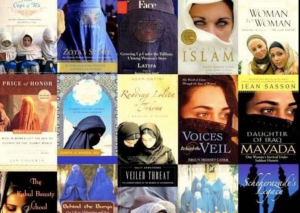There’s a great piece on USAToday.com exploring the sad overlap between the worldview of Norway’s mad Islamophobe murderer Anders Breivik and the thinking of significant swathes of political life in Western countries today, especially on the Right. His mindset and hate are hardly unheard-of in these polarized times.
Oxford historian Tim Stanley makes many good points. The one you ear least often but which I think in a lot of ways is the most important concerns the very recent vintage of Islamic extremism. From “In Breivik, troubling echoes of West’s view of Islam” on USAToday.com (April 18, 2012):
The mistake being made by all these people is to conflate a tiny minority of political Islamists — whose precise ideology has only really emerged in the last 30 years — with the entire global and historical community of Muslims. It is true that Islam has never undergone a total Reformation, but it has experienced mini-enlightenments. The most celebrated is the Islamic Golden Age (750- 1258), centered in Baghdad, in which the arts and sciences flourished in a manner that left Dark Ages Europe far behind. (You can also find humanist poetry and art in Persia and even a small amount of erotica in Northern Africa.)
I’ll forgive Stanley his resort to the hackneyed Reformation quip. The Reformation certainly was a critical event in the development of Western values, but the idea that something like it is desirable for the Muslim world is debatable. Indeed, in many respects the modern, Salafist ideologies whose newfangled influence Stanley is highlighting here are highly “Protestant” (with apologies to Protestant Christians–the analogy is intended in a very limited, methodological sense). Note the shared insistence on Sola scriptura, the common rejection of age-old established religious institutions, and the parallel repudiation of the authority of a sacred tradition developed over many centuries. (Again, no offense intended to Protestants out there–I just happen to think the Church had the better of that argument, however pivotal the Reformation turned out to be the development of Modernity.)
Anyway, I like how he points that the obscurantist, intolerant and indeed sometimes fascist ideologies that many non-Muslims now associate with Islam are a recent historical development, born in a unique petri dish in the Muslim world during the second half of the Twentieth Century of petrodollar-funded Wahhabi indoctrination, singularly inept (and insincere) promotion of secular values by corrupt elites , and a variety of other unique socio-cultural circumstances (e.g., the Six-Day War of 1967).
That’s not to say many Muslims haven’t been ignorant, warlike, intolerant, misogynistic or otherwise unenlightened in the past. (I don’t idealize Muslims, past or present.) But there’s no question that the interpretative framework that governs the ideology of most Islamic extremists is new in Islamic tradition, whatever its merits may be.
That admission doesn’t let Muslims off the hook for falling prey to such madness and foolishness, nor does it in itself explain why traditional Islamic scholars weren’t more successful at inoculating modern Muslims against these spiritual and intellectual plagues. But it does help us better situate today’s problems in historical context and show us that there’s nothing natural, innate or preordained about them.
A similar case can be made concerning the ahistoricity of Breivik’s brand of conservatism and nationalism, such as they are. His embrace of anarchic revolution–to say nothing of his psychotic comfort with murder and mayhem–is utterly contrary to all strains of traditional conservatism.











